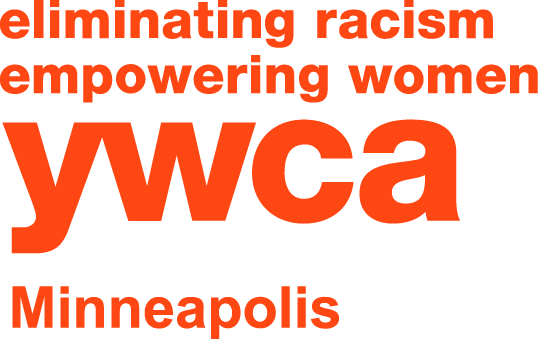A Persistent Advocate: Pushing toward More Nuanced, Authentic Conversations for Racial Justice
Deqa Sayid joined the YWCA Minneapolis team earlier this year as the racial justice training coordinator. In her role, she trains volunteer racial justice facilitators and leads community workshops to teach people about race, racism and how to take steps toward bringing about change.
A Teenage “Anthropologist”
Born and raised in Somalia, Deqa Sayid immigrated to the U.S. in high school, and felt a heightened sense of awareness that came from moving to a new place at such a formative age. “I almost felt like an anthropologist as a teen, watching how different groups interacted,” says Deqa. This experience piqued her interest in both the formation of the “self” and law, which later led her to double-major in both psychology and criminology in college.
A Lens for Viewing the World
Studying criminology opened her eyes to major inequities in the American criminal justice system. In her classes, she saw how race was embedded in every aspect of the system, like how certain drugs are criminalized more (hold heavier sentences), because people of color are the ones using them the most. “I learned so much in that program, not just about society, but also how we internalize these aspects,” says Deqa. This education became a foundation for Deqa and served as a lens through which she saw the world.
Helping People through Inequitable Systems
Deqa completed her Master’s degree in Education with a concentration in Multicultural Counseling. She went on to hold different positions helping people directly – a health navigator at a resettlement agency for refugees, a behavioral case manager for a clinic that provided mental health services and a family advocate with a public school system. She also obtained a mastery certificate in Global Mental Health Trauma and Recovery.Throughout these experiences, Deqa observed how the systems that were supposed to help, kept failing people instead, especially those who were the most marginalized. When working with people with mental health illnesses, she noticed medical providers inadvertently treating certain groups differently, even providers who confidently labeled themselves “culturally competent.” They would often make simple mistakes that would be detrimental for people they served – like scheduling critical medical appointments on major religious holidays, or not understanding why patients declined certain medications or treatments.
Calling out Cultural Incompetence
“We often equate proximity to different cultures to cultural competence,” says Deqa. “Just because you have ‘x’ number of patients, students or customers from a certain group does not mean anything if you are not actively working towards providing them services that are culturally and socially respectful.” In these instances, Deqa found herself stepping in as an advocate. “It’s hard for people to even realize they are being culturally insensitive a lot of the time,” says Deqa. But as someone who holds many marginalized identities – black, Muslim, refugee, woman – it was incredibly clear to Deqa. “I’ve always had to call it out and have discussions around why it wasn’t ok.”
Pushing for Nuanced, Authentic Conversations
Deqa first attended It’s Time to Talk: Forums on RaceTM a few years ago and she admits the experience left her with more questions than answers. She felt that the discussion did not go deep enough and recognized that there were some clear power dynamics at play at her table.But the experience motivated Deqa to learn more. “After that, I thought ‘well, what is my action item?’ and I decided I’d look into YWCA’s programming and racial justice work.” That’s when Deqa signed up for YWCA Racial Justice Facilitator Training and got more involved in YWCA Minneapolis.
Helping People Start their Journeys
In her career, Deqa served as an advocate, witness and champion for others. All along, she had been doing the work of racial justice – she just has the official title for it now. In her role as racial justice training coordinator at YWCA Minneapolis, she wants to make the workshops, facilitator trainings and events even more impactful, despite the challenging nature of the work. She says it’s a balance between meeting people where they are in their journey and continuing to push the conversations forward.Her vision? “I want to see more facilitators start their journeys here. We need more white facilitators too,” says Deqa. “I have noticed that a lot of people find it easier to listen to other white people. Also, racial justice conversations could be traumatizing for those who experience racism on regular basis.” Eventually, Deqa wants to expand topics to advanced level courses and add even more nuance to the conversations. “I want to expand the conversations we are discussing… still centering racial justice, but also delve into how inequities affect other identities.”What she likes most about her work is that it offers people opportunities to learn. “Nobody has all the answers,” says Deqa. “Everyone can learn more.” She says people are often looking for ways to take action. And having conversations is one place to start.Learn more about YWCA Racial Justice and Public Policy TeamLearn more about YWCA Racial Justice Programs
